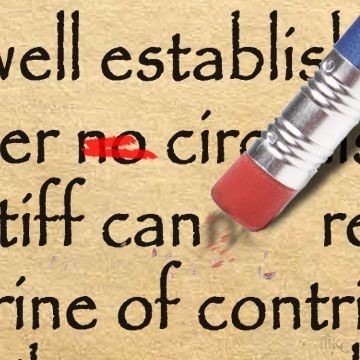The Lawyer's Lawyer
Challenging the Law
Q. It's a loser under current case law, but my client still wants me to seek relief that would require a major reversal of precedent. If she'll agree to a generous retainer and hourly fees, should I take it?
A: Under Rule 3.1 of the Rules of Professional Conduct, if you have a good faith argument for an extension, modification or reversal of existing law, you are ethically permitted to accept the challenge.
I don't know the nature of your legal issue. So I leave to your judgment whether you have a legitimate shot at changing the legal landscape. If you do, and the issue is important enough, your pursuit may be extremely valuable to your client and to society at large. Were it not for courageous legal mavericks, we'd still be bound by cases like Plessy v. Ferguson, with students in segregated schools learning about a society lacking many of the civil rights we now take for granted.
There is a place for legal rebels in a system that leaves a lot of room for improvement and reform. But lest you get lost in some romanticized version of Supreme Court success, you must be sure that your client shares your vision of the case and is willing to assume the expense of the challenges that lay ahead.
That may be true in your case. But this is as rare as the landmark cases we learned about in law school. Clients often lose their courage and their patience after spending years in litigation and a fortune in fees. When that happens, they may balk at your bills or contact a certain "customer service department" run by an official with the title of Bar Counsel.
So before filing your next "landmark case," make sure your client fully accepts the challenge as well:
➤ Discuss the current state of the law and the realistic impediments to success;
➤ Explain your strategy in seeking to reverse, modify or extend existing law, but don't over-sell it. You must also address the counterarguments you may face in the process;
➤ Advise the client of the potential for protracted litigation involving years of appeals and proceedings at various levels of the court system;
➤ Discuss the expense your client is likely to incur over the lifespan of a labor-intensive case; and
➤ Reduce your advice to writing - unless you memorialize your "sobering conversation" in a retainer agreement that leaves nothing to the imagination, you risk the wrath of a dissatisfied client with a very different recollection down the road.
Even if you have a well-written retainer agreement, you should be leery of filing cases you are likely to lose. No matter the odds or explanations, losing clients tend to be unhappy clients. And unhappy clients are more likely to take their complaints to Bar Counsel.
But if you and your client truly believe that the cause is worth the risk, go out there and change the law.
